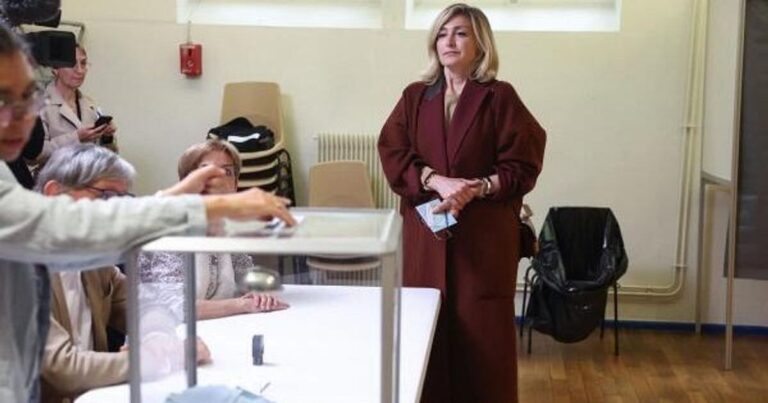PARIS: France will hold the first round of parliamentary elections on Sunday, with opinion polls suggesting the far right is likely to win in the two parliamentary elections that end on July 7.
Here are some key facts about the election and what’s coming next.
How does voting work?
There are 49 million registered voters in France. There are 577 constituencies, one for each seat in the National Assembly, the lower house of parliament, that hold elections.
The candidate who receives the absolute majority of votes in a constituency is elected in the first round. In most cases, no candidate meets this criteria, so a second round is held.
To advance to a runoff election, a candidate must receive at least 12.5% of registered voters in the first round.
The player with the highest score will be the winner of the second round.
When will the results be announced?
The first round of voting ends at 8pm (1800 GMT) on Sunday, and pollsters release nationwide projections based on partial vote counts. These are usually reliable. Official results are released piecemeal from 8pm onwards. Vote counting is usually quick and efficient, and by evening the winners of all or almost all seats are known.
Who will run the government?
The president usually appoints the prime minister from the party with the most seats in parliament.
Opinion polls suggest the far right could win for the first time in France’s post-war history, with a left-wing coalition expected to come in second and President Emmanuel Macron’s centrist bloc in third place.
However, this is an unprecedented election in France, the campaign period was short and the electoral situation was fragile, so other scenarios cannot be ruled out.
These include a dysfunctional parliament split into three groups with no one in control, and one in which mainstream parties have joined forces to keep the far-right out of power.
To achieve an absolute majority, at least 289 seats are needed.
Marine Le Pen’s National Rally (RN) could form a minority government if it won the most seats without reaching that threshold, but its 28-year-old leader, Jordan Bardella, said it needed an absolute majority or it would be unable to implement reforms.
In its post-war history, France has experienced three periods of “coexistence” in which the government and the president had different political stances.
While the government holds most of the power at home – the president is also head of the military and has influence abroad – the division of powers for foreign policy is unclear, which could pose problems for France’s stance on the Ukraine war and European Union policy.
Macron will have to face the new parliament for at least a year, after which he can call new elections.
Macron is set to win a second term in April 2022 for another three years as president, after which neither parliament nor the government can remove him from office.
Published June 30, 2024 10:12 IST

